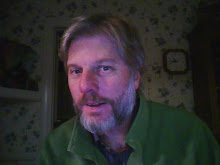Tuesday, April 13, 2010
The Swan
I am reading a marvelous little book by Mary Oliver right now called Winter Hours. If you don't know Mary, you might look for her poems on line or dig into a library volume. She is a great New England poet of our own age after so many that have written before her. Mary speaks honestly and simply about what a poem must be for her in winter hours; and her honesty is disarming and lovely. She says, among other things, that at their best moments her poems ask a question and leave it unanswered. I know, I think, what she means. But I am not sure if it is really to leave the question unanswered so much as to be faithful and courageous enough to ask the questions and point at answers that are all beyond the light our human eyes can see -- to reach in the shadows of something greater than we will ever know with our minds or words or touching or chewing. For me the best poetry doesn't just ask questions, but it looks beyond questions to the deeper challenge where wordy questions fall apart, crack under the strain, and become so much distance between the truth and our little brains. I am not sure she -- Mary Oliver -- would disagree with me here. She lets her luminous poem, The Swan, speak of this in ways her simple words in the prelude to the poem cannot. The Swan does ask a question without an answer. But the question itself already points beyond the words to white wings and other shores beyond our knowing. May we never, in poetry or life, settle for even good questions without answers but always journey beyond.
Subscribe to:
Post Comments (Atom)


As a sometime-author, I find that the answers often come as a simple result of writing about the question. The organization of words requires an organization of thought that allows an answer to appear.
ReplyDelete